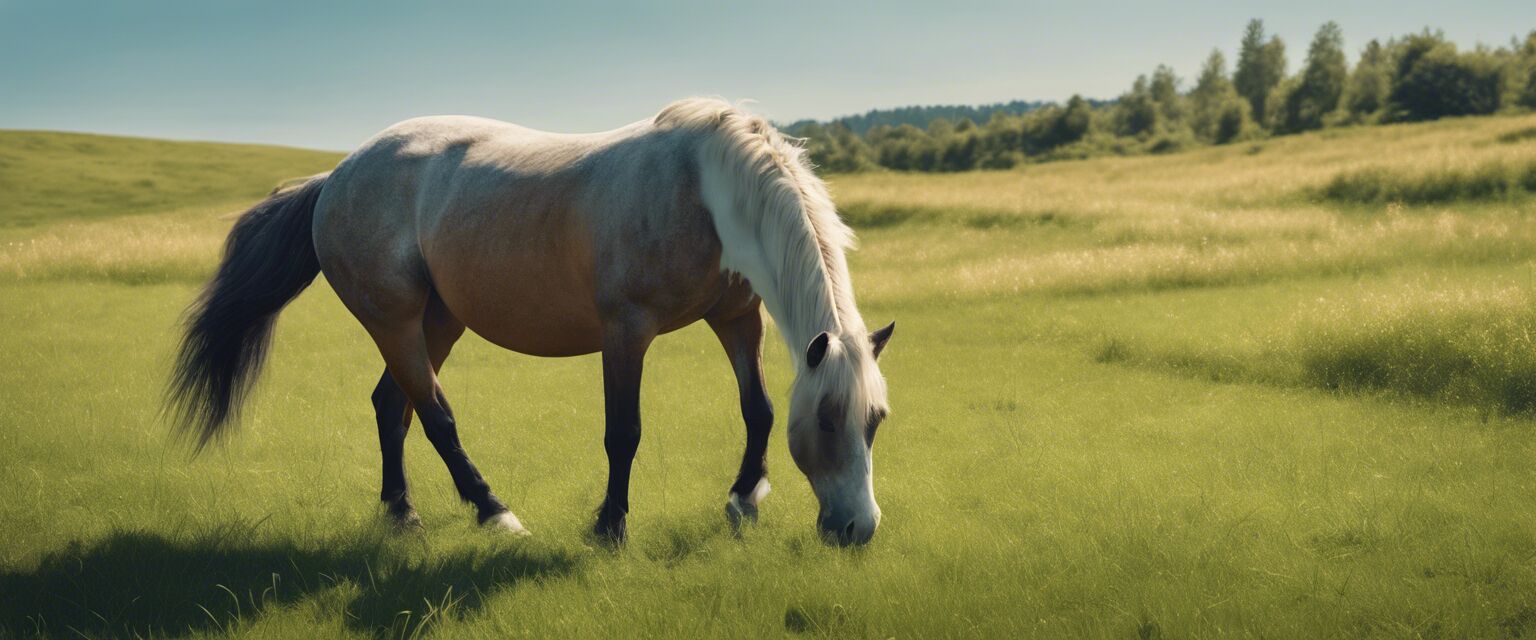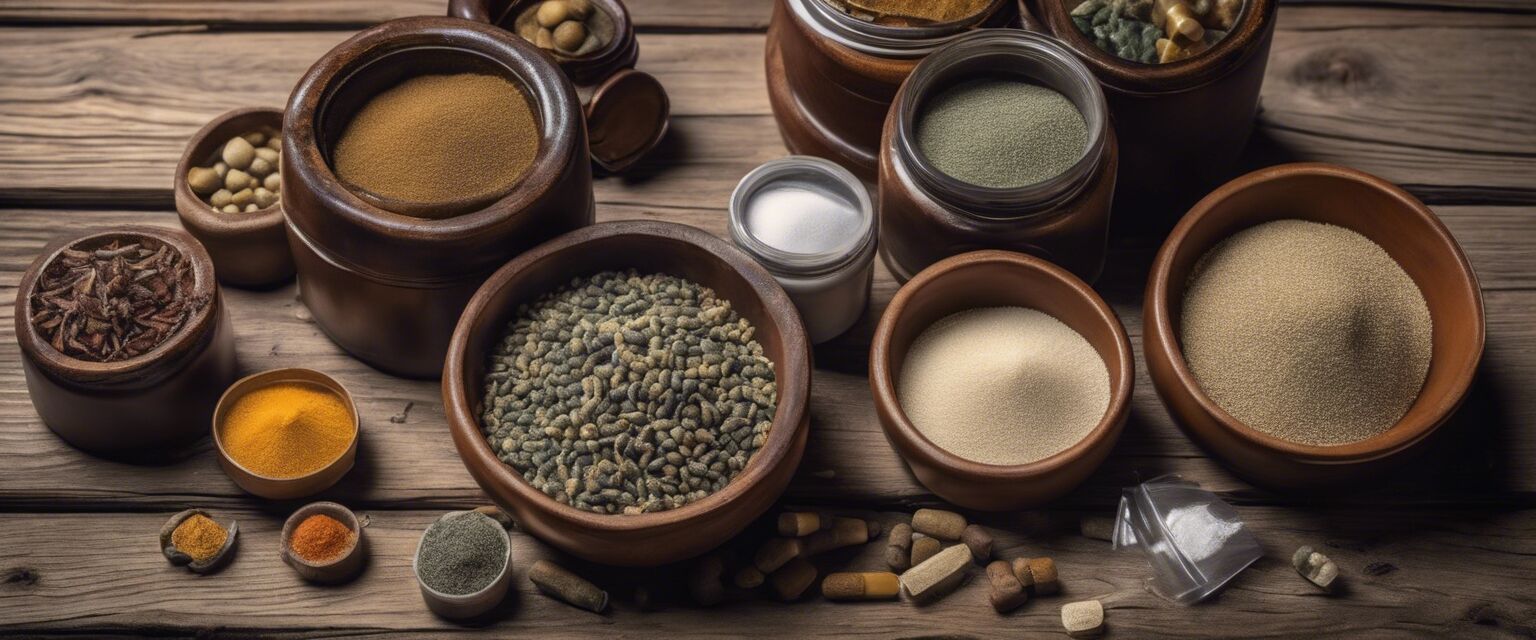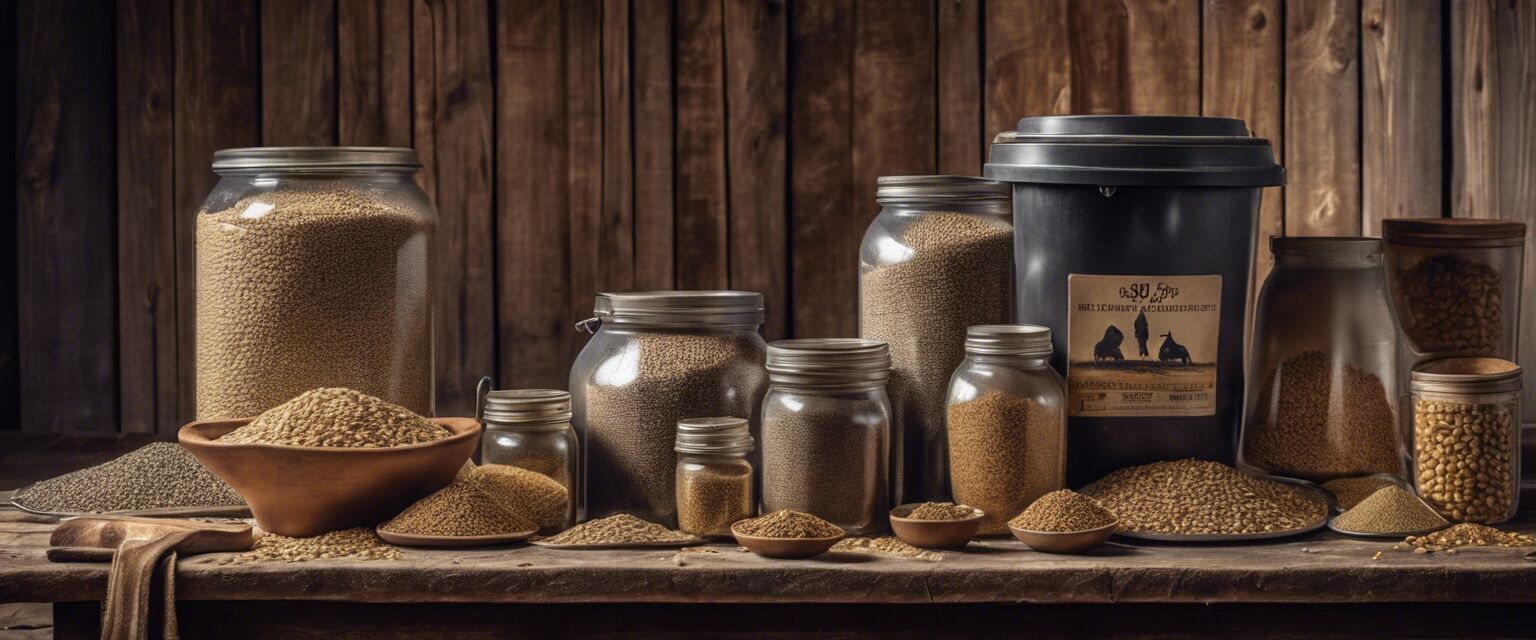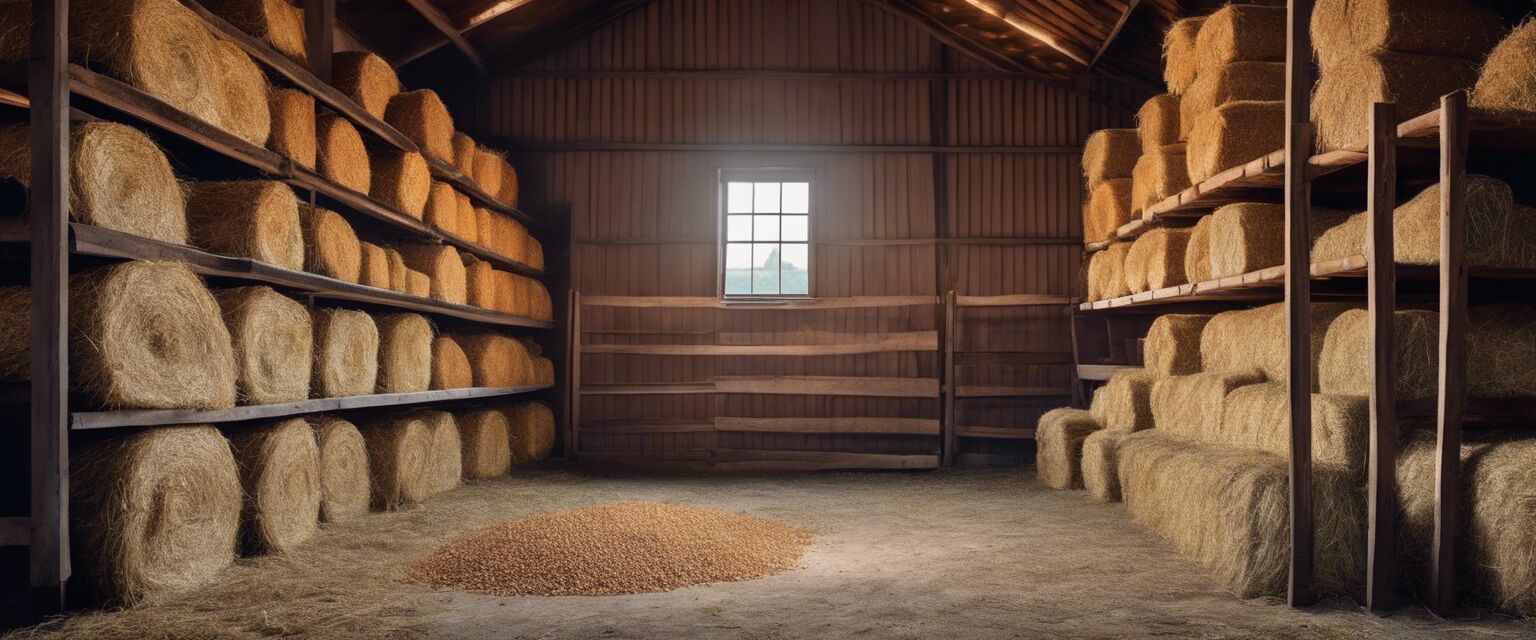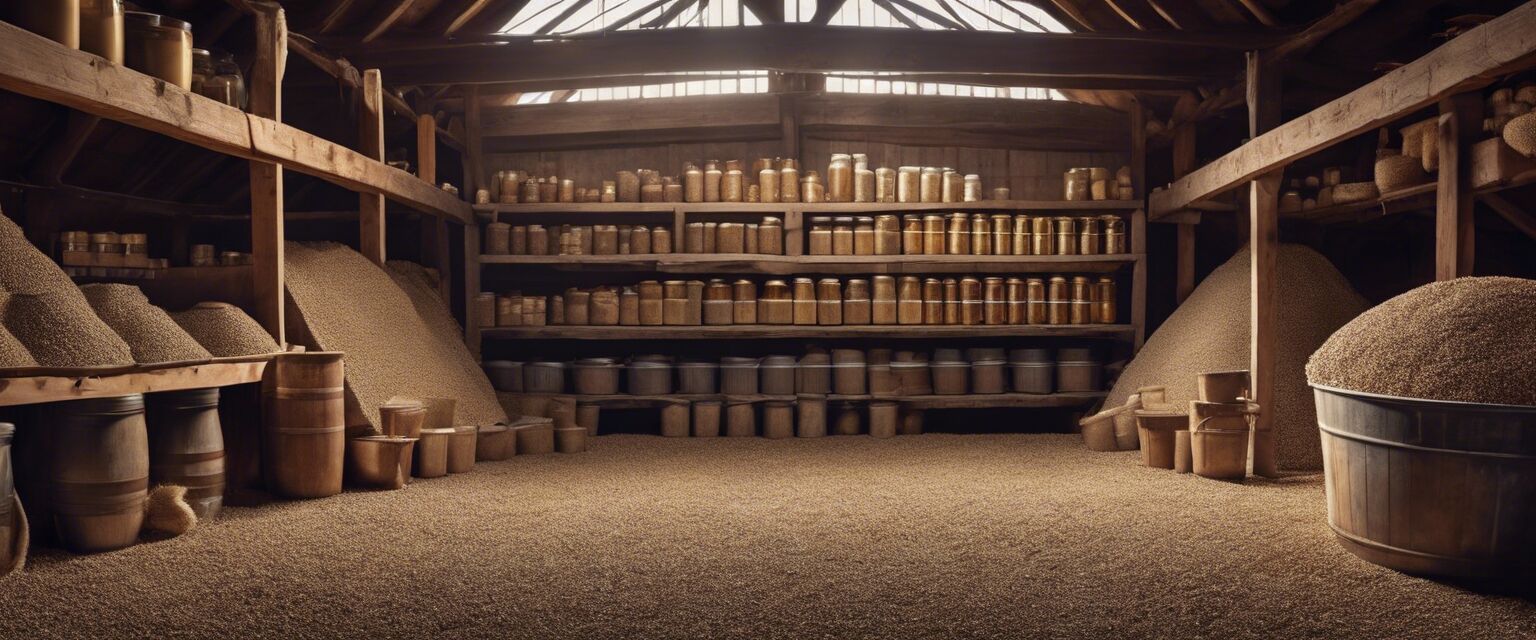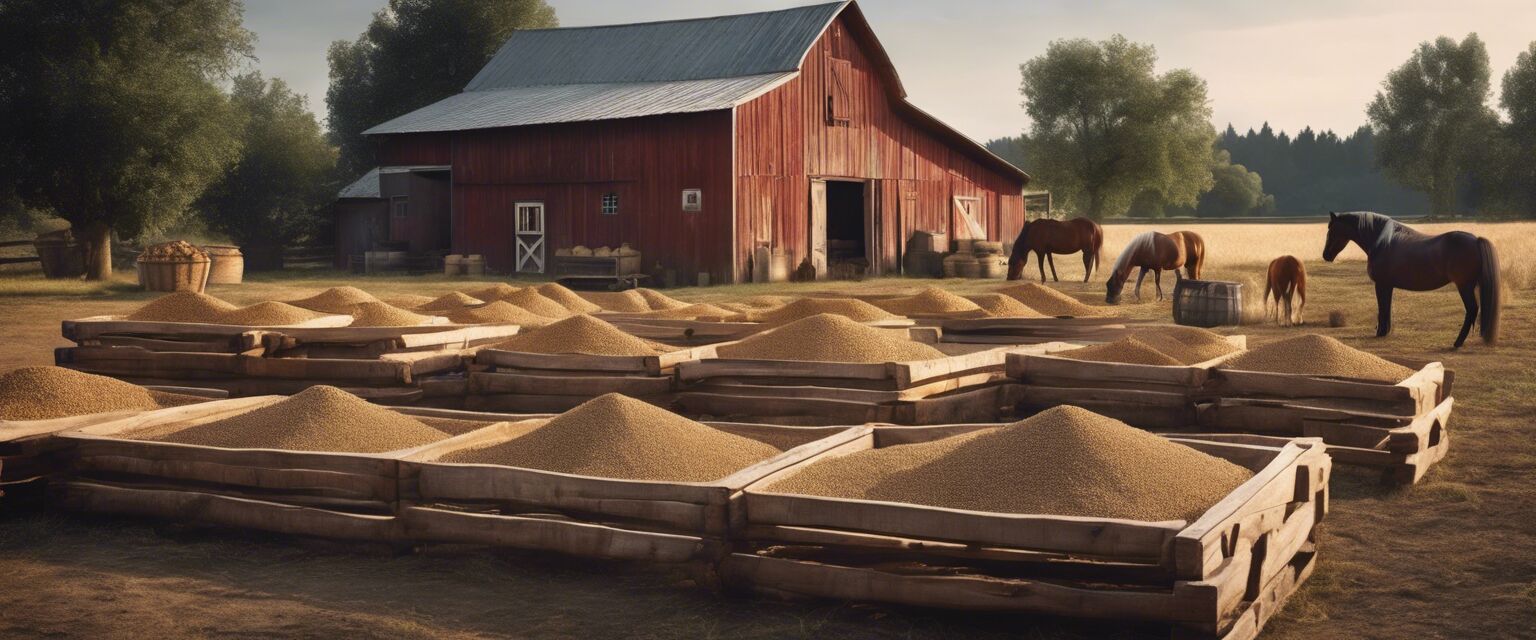
Feeds and Forages
Key Takeaways
- Understanding different types of horse feeds is crucial for proper equine nutrition.
- Forages are essential for digestive health and overall well-being.
- Choosing the right feed involves considering the horse's age, weight, and activity level.
- Consulting with a veterinarian or nutritionist can provide tailored feeding strategies.
When it comes to horse care, nutrition plays a vital role in maintaining their health and performance. In this comprehensive guide, we delve into the various types of horse feeds and forages, their benefits, and best practices for feeding your equine friend.
Understanding horse feeds
Horse feeds come in various types, each designed to meet specific nutritional needs. Understanding these types will help you make informed choices for your horse.
| Feed Type | Description | Best For |
|---|---|---|
| Grain | High-energy feeds that provide carbohydrates and some protein. | Active horses and those needing weight gain. |
| Pelleted Feed | Convenient and balanced feeds that ensure consistent nutrition. | All horses, especially those with specific dietary needs. |
| Sweet Feed | A mixture of grains and molasses for improved palatability. | Horses that are picky eaters. |
Benefits of horse feeds
- Provides necessary nutrients for energy and growth.
- Can be customized to specific dietary requirements.
- Helps maintain optimal body condition.

Importance of forages
Forages, such as hay and pasture, are the cornerstone of a horse's diet. They provide essential fiber that supports digestive health.
| Type of Forage | Description | Best For |
|---|---|---|
| Grass Hay | Made from various grasses, ideal for most horses. | Maintenance horses and those at rest. |
| Legume Hay | Higher in protein and energy, often alfalfa-based. | Growing foals and lactating mares. |
| Pasture | Fresh grass that provides natural nutrients and fiber. | All horses, especially those with access to grazing. |
Benefits of forages
- Provides necessary fiber for digestion.
- Helps prevent colic and other digestive issues.
- Supports a healthy weight and condition.
Feeding strategies
Implementing effective feeding strategies is vital for your horse's health. Here are some tips for optimal feeding:
Feeding Tips for Horse Owners
- Feed according to your horse's weight and activity level.
- Provide hay free-choice to encourage natural eating habits.
- Introduce new feeds gradually to prevent digestive upset.

Special diets for specific needs
Some horses may require special diets due to health conditions or performance levels. Here are a few considerations:
- Older horses may need softer feeds or soaked hay.
- Horses with metabolic issues might require low-sugar feeds.
- Performance horses often benefit from higher fat and protein levels.
Consulting with professionals
Itâs always best to consult with a veterinarian or equine nutritionist to tailor feeding practices to your horse's specific needs. They can provide insights into:
- Assessing body condition and nutritional status.
- Creating a balanced diet plan.
- Monitoring changes in health and performance.
Conclusion
Proper nutrition is the foundation of a healthy horse. By understanding different types of feeds and forages, you can make informed decisions that promote your horse's well-being. Always remember to monitor their condition and consult with professionals to ensure the best feeding practices.
Pros
- Enhances overall health and performance.
- Supports digestion and prevents issues.
- Can be tailored to individual needs.
Cons
- Improper feeding can lead to health problems.
- Costs can vary based on feed quality.
Further reading
For more insights on equine nutrition, check out our other guides:
